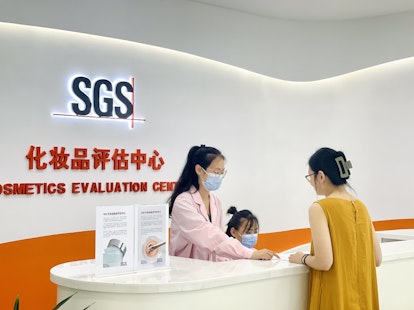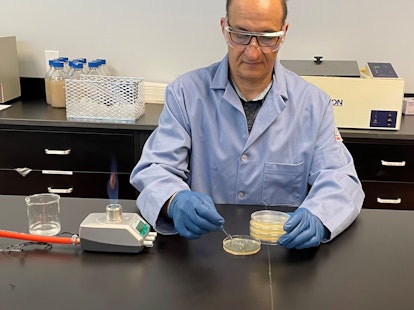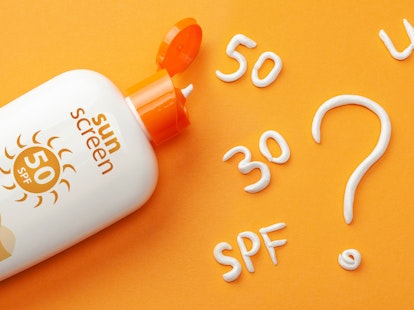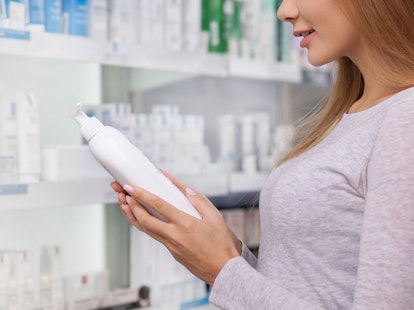Consumers increasingly want natural and/or organic cosmetic products, seeing these as the best way to reduce our impact on the environment and harm to our skin. In this article, we look at how NATRUE certification can help consumers identify natural and organic products in an expanding market.
A growing market
Consumers are more aware than ever of the potentially harmful impacts of chemicals on our health and the environment. In response, they are increasingly turning towards natural and organic products, especially in relation to products we ingest or apply to our skin.
In 2018, the global market for natural cosmetic products was worth around USD 34.5 billion.1It is estimated this will increase to USD 57 billion by 2027.2 The market is split roughly 1/3 skincare products, 1/3 haircare products, and 1/3 all other products.3
It is clear there is a growing market for natural and organic cosmetic products. However, for the consumer it can be difficult to find the right product because, although cosmetics is one of the most tightly regulated industries in the world, in the past, the terms ‘natural’ and ‘organic’ were not well defined. Depending on the product, the manufacturer, and the market, these terms can be used in a variety of ways, with products being labeled using these terms when many would consider them inappropriate.
For consumers, this can cause confusion when all they want is a product that is truly better for their skin and the environment. For manufacturers of natural and organic products, this makes it difficult for them to differentiate themselves in the marketplace. What is needed is a recognizable symbol for natural and organic that is universally understood.
NATRUE
Founded in 2007 and located in Brussels (Belgium), the International Natural and Organic Cosmetics Association (NATRUE) seeks to raise the concerns of authentic natural and organic cosmetic manufacturers at the international regulatory decision-making level. These concerns stem from the lack of an internationally recognized definition for natural and organic cosmetics and the increasing greenwashing that is occurring in the sector.4
The NATRUE label and standard were launched in 2008 to bring conformity and validity to the global market for natural and organic beauty products. Currently, there are 309 certified global brands, available in over 30 countries, that can claim the NATRUE label. Because it is internationally recognized, certification helps manufacturers differentiate their products in markets around the world.
Certification or approval?
The benefits of NATRUE recognition can be applied to finished products, formulas, and raw ingredients. In the case of finished products, manufacturers and brands can only seek certification for their products, allowing them to display the NATRUE label.
Certification is held in one of three forms:- Natural cosmetics – the foundation standard. It defines the ingredients that are permitted in a product and how they should be processed. Each product type has a guaranteed threshold for natural ingredients and a cut-off level for derived natural substances. Certified products may also contain organic ingredients
- Natural cosmetics with an organic portion – must meet the above certification with a minimum of 70% of ingredients originating from controlled organic production and/or controlled wild collection. All product types must have higher levels of wholly natural ingredients and correspondingly lower levels of derived natural ingredients
- Organic cosmetics – must meet both of the above standards with at least 95% of ingredients originating from controlled organic production and/or controlled wild collection. Compared to the second level, this level requires higher levels of natural ingredients and lower levels of derived natural ingredients
Certification has a validity period of two years.
In addition to certification, producers, traders and/or wholesalers of raw materials can also seek NATRUE approval. Requirements differ:
- Non-organic raw materials – only documentation check
- Organic raw materials – for those falling under the scope of a regulation or standard listed in the International Federation of Organic Agriculture Movements (IFOAM) family of standards with further processing if the processing falls out of scope, a documentation check plus an on-site inspection in year one
If an organic raw material falls under the scope of a regulation or listed standard without further processing, or if it remains in scope with further processing, there is no need for approval or certification.
Certification for organic raw materials that do not fall under the scope of a regulation or IFOAM recognized standard will require a documentation check and onsite audit.
For third-party manufacturers who wish to sell their formula to brand owners, they can apply for NATRUE approval for a formula.5
Raw material transition period
Raw materials have only been eligible for the approval scheme since January 2020.6 This creates the following transition deadlines that stakeholders should be aware of:
- January 31, 2022 – producers of raw materials currently used in NATRUE certified finished products must have transitioned to either certification or approval
- February 1, 2020 – producers of finished products must only include NATRUE certified or approved raw materials in their formulations
SGS solution
The NATRUE label provides consumers with a simple and easily recognizable symbol that the products they buy are truly ‘natural’ and/or ‘organic’. For manufacturers, it helps them differentiate their products in a competitive market.
SGS offers a comprehensive range of services to help manufacturers of cosmetic products prove compliance with a variety of internationally recognized standards, including NATRUE certification for raw materials and finished products and NATRUE approval for raw materials and formulas.
In the end, it’s only trusted because it’s tested.
Learn more about SGS Cosmetics and Personal Care Services.
View our webinar: NATRUE - global label for organic and natural cosmetics
For more information, please contact:
Dr. Bettina König
Consultant and SGS Auditor for NATRUE certification
t: +43 53 32 77203 0
Sabine Ahlers
Sales Manager and SGS representative for NATRUE certification
t: +49 172 27 45 950
References
1 Global market value for natural and organic cosmetics and personal care from 2018 to 2027
2 Natural and organic beauty market to reach $54BN by 2027 & Global market value for natural and organic cosmetics and personal care from 2018 to 2027
3 Distribution of the global natural and organic beauty products market as of 2019, by product
4 The creation of NATRUE
5 Certification and approval process
6 NATRUE’s new Raw Materials Approval Scheme



